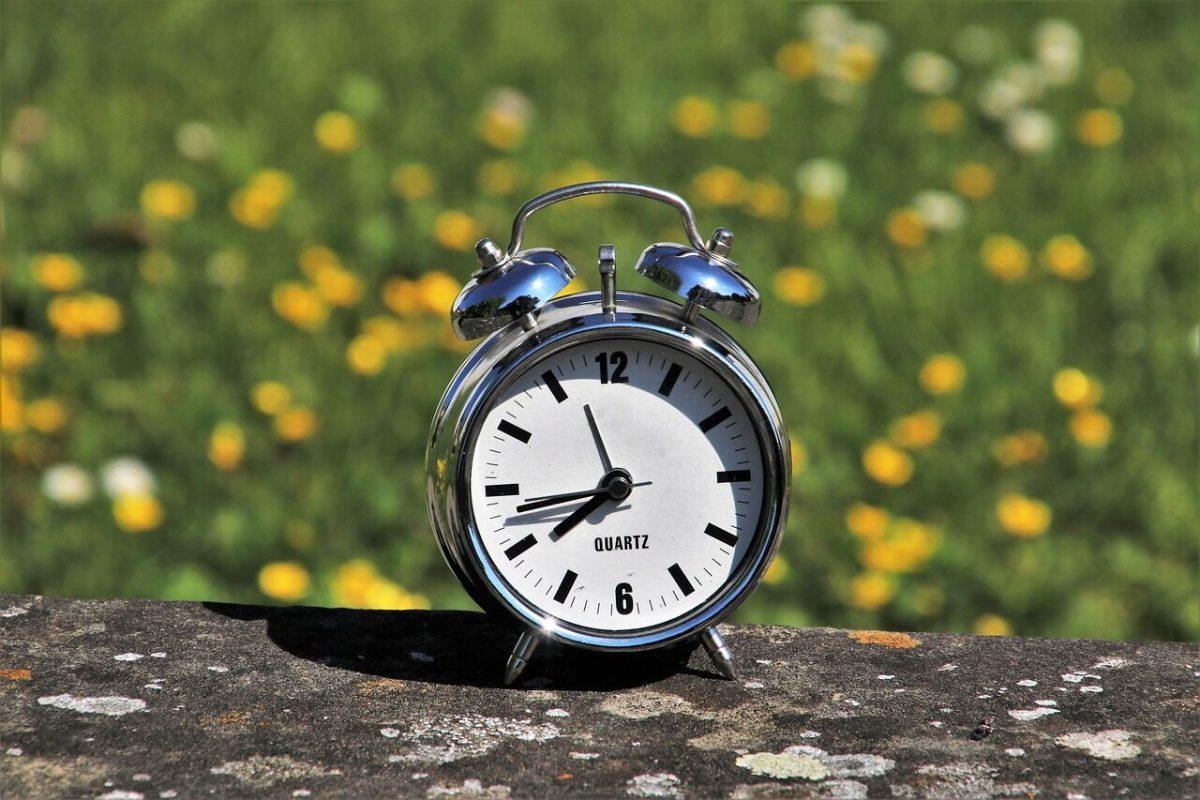Picture this: It’s the beginning of December. You just finished a late lunch and killed your last exam of the day. You stagger out of Blocker at 5:30 p.m., just in time to see the street lamps flick on. It’s already dark!
That’s where the Sunshine Protection Act comes in.
Recently, the U.S. Senate unanimously passed the Sunshine Protection Act, a bill that would institute permanent daylight saving time, or DST, moving our sunrises and sunsets forward by one hour. Experts are divided, some heralding the bill for its health and safety benefits, and others criticizing it for its dangers to the same sectors.
So, you may be wondering: How did this pass the Senate unanimously when we’re in the middle of the Russia-Ukraine war? Isn’t mitigating the imminent recession more pressing than deciding whether we change our clocks twice a year?
And the answer is … well, yes. That’s partially the reason it passed. Generally, for a bill to pass in the Senate, it needs a simple majority: 51 of the 100 senators’ approvals. However, noncontroversial matters are often settled using unanimous consent, in which a measure doesn’t necessarily have to garner all 100 ayes — it just has to squeak through without a single nay.
On any given day, senators’ schedules are a potpourri of meetings, phone calls, fundraisers, interviews, campaigns and clobbering each other with canes. Actually, if I had a nickel for every time two senators went ham on each other with a cane, I’d have two nickels. Which isn’t a lot, but it’s weird that it’s happened twice.
But, I digress. The point is, senators have a lot going on. Because of this, the towering pile of summons on their desks is left to their clerks, who are forced to make decisions on the senators’ behalf. In light of more pressing concerns, the clerks dismiss less important matters like the Sunshine Protection Act. Most of the senators who would have opposed the bill weren’t aware of the hearing, and those who were aware had other matters to attend to.
So, pass it did. The bill’s sponsor, Sen. Marco Rubio (R-Fla.), made several well-phrased points during his argument, which is surprising coming from a man who just copy-pasted “daylight saving” into thesaurus.com to get “sunshine protection.” After establishing his age by saying we want kids to stay off those pesky “computer terminals,” Sen. Rubio listed several benefits of the proposed bill during a March 15 Senate Energy Committee meeting, including decreases in child obesity and seasonal depression.
To justify these claims, Sen. Rubio said the extra hour of sunlight would give kids more time to play outdoors and overall be beneficial for people’s mental health. Sen. Rubio concluded his statements with a fun tagline for the bill: “This is an idea whose time has come.”
His cosponsors reflect this ideology. Sen. Edward Markey (D-Mass.) called the current system an “outdated government policy” during committee, citing studies which found that “year-round daylight saving time would improve public health, public safety, energy policy [and] mental health.”
In many ways, these claims are valid. America sees peak energy consumption between 4–6 p.m.; having daylight during this time would decrease electricity usage. The bill would also help minimize vehicular accidents between 6–9 p.m., the range during which most crashes occur. To wrap up his argument, Sen. Markey produced his own tagline: “Let’s go from polar to solar!” It doesn’t make much sense, but he seemed proud of it.
Despite the senators’ adamant support, the bill also has several disadvantages. In places like College Station, where it gets hotter than a jalapeño’s armpit, the late afternoon sunshine will exacerbate our air conditioning bills. It could also introduce severe health complications; the American Academy of Sleep Medicine warns against increased diabetes, depression and heart attack rates. They argue that permanent standard time — rather than DST — would align better with our natural circadian rhythms.
What does this mean for Aggies? If the bill goes into effect, students would have the opportunity to regiment their sleep schedules. However, the bane of most students’ sleep schedules is themselves, not clock-changing, so this likely wouldn’t have much effect.
We’ll see the biggest change on winter mornings; some days, the sun would rise as late as 8:20 a.m. This means walking or driving to 8 a.m. classes in the dark, possibly increasing pedestrian-driver accidents in the early hours. Conversely, the time change would make it much easier to share a romantic morning with someone by watching the sunrise from the roof of Northside Garage. Besides, this hour of darkness is offset by an extra hour of sunlight in the evenings. More time to get outside and play pickleball with your buddies!
This idea of permanent DST has actually been broached before. In 1974, Congress passed a similar law with a two-year trial period. Americans hated it; the experiment lasted less than a year, with the House voting 383-16 to repeal it. Currently, the Sunshine Protection Act is being held at the House; if it passes, it will move to President Joe Biden’s desk and await a signature. Will history repeat itself, as it is so often wont to do, or will this be a welcome change? In the wise words of Bob Marley — and pardon the pun — “only time will tell.”
Charis Adkins is an English freshman and opinion writer for The Battalion.






















